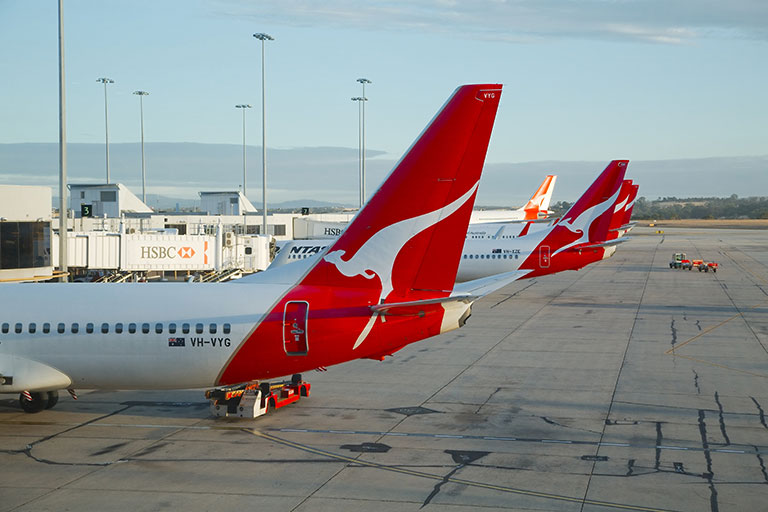Underlying profit before tax was down 16 per cent to $2.08 billion, while after-tax statutory profit was down 28 per cent to $1.25 billion.
While this year’s results are a decrease from the massive profit of 2022-2023, those results were marred by reputational woes for the airline amid legal action and customer dissatisfaction.
Within the month after last year’s sizable profit announcement, Qantas Group’s CEO Alan Joyce abruptly departed and the new CEO issued an apology to customers.
While profits were down in the last financial year, performance in other non-financial metrics was up, with both Qantas and Jetstar increasing their punctuality by 10 per cent and 8.8 per cent respectively, between quarter 2 and quarter 4.
Both airlines’ customer net promoter scores – how likely passengers are to recommend either Qantas or Jetstar to others – were also up significantly – Qantas by 22 points and Jetstar by 19 points.
“Our focus this year has been getting the balance right in delivering for customers, employees and shareholders while building a better, strong Qantas Group,” said Qantas Group CEO, Vanessa Hudson.
“Restoring trust and pride in Qantas as the national carrier is our priority, and while there’s more work to do, we’ll get there by delivering for our customers and people consistently into the future.”
Qantas attributes the 2023-2024 drop in profits to the decreasing price of airfares, investment in customer initiatives and a drop in freight revenue in the first half of the year.
Today’s profit announcement doesn’t include the impact of the ACCC settlement, which is estimated to be a $100 million expense for Qantas, or any penalty from the industrial relations case the airline lost last financial year.
Qantas returned to pre-COVID capacity in its international fleet in May 2024, however its international revenue fell by 11 per cent due to competition from other international airlines also ramping up capacity post-COVID. International revenue is expected to continue to decline, by about seven to 10 per cent in the first half of this financial year, before recovering in quarter four.
Looking forward, Qantas says travel demand is stable.
“This result shows the underlying strength of the group’s integrated portfolio,” said Hudson.
“Qantas benefited from increased corporate and resources travel and ongoing high demand for international premium seats while Jetstar delivered its highest result as it grew to meet increased demand from price-sensitive leisure travellers and saw the benefits from its new aircraft.
“The investment in operational reliability and customer initiatives delivered a positive improvement in on time performance and customer satisfaction with Qantas ending the year as the most on time major domestic airline.
“Our strong financial performance and balance sheet will allow us to continue to invest in our largest ever fleet renewal program, which will benefit our customers and people, as well as delivering shareholder returns.
“These investments come at a time when Australians are continuing to prioritise travel over other spending categories, with intention to travel over the next 12 months remaining high.”




















